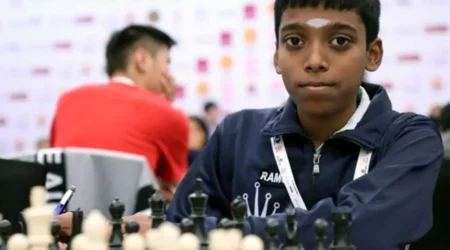New Delhi: The whole world of cricket was left in shock after losing not just one of its greatest cricketers but also one of its greatest characters — Shane Warne. The legendary Australian leg-spinner passed away in a suspected heart attack in Thailand at the age of 52.
Born on September 13, 1969, at Ferntree Gully in Victoria, Warne made his Test debut against India in Sydney in 1992 and followed it with an ODI debut against New Zealand in Wellington in March next year.
The Australian, who was chosen as one of Wisden’s Five Cricketers of the Century, finished his career with 293 wickets in ODIs and 708 wickets in Tests, the most by a leg-spinner in the format. He also won the World Cup with Australia in 1999 and was the Player of the Match in the final against Pakistan with figures of 4 for 33.
Affectionately known as ‘Warnie’, the cricketer is credited with almost single-handedly reviving the art of leg-spin in the early 1990s. Although luminaries such as Pakistan’s Abdul Qadir had kept the art alive, Warne brought a new glamour and attacking intent to leg-spin. With his sharp and tactical brain, he could outfox the world’s best batters.
Notably, the leg spinners’ delivery to Mike Gatting in the Manchester Ashes Test in 1993 is considered as the ‘ball of the century’.
Like football legend Diego Maradona, Warne was also talented, charismatic, had a flamboyant personality, both on and off the field, and was involved in a fair amount of controversies in his life.
Away from the cricket field, Warne was rarely far from the front pages of the tabloids, which have produced a string of revelations about his personal life. His ‘sexcapades’ were as famous as some of his deliveries.
In 1995, both he and his then team-mate Mark Waugh were fined for giving information to an Indian bookmaker during the previous year’s tour of Sri Lanka. He fell foul of the cricket establishment for his comments against the then Sri Lanka captain Arjuna Ranatunga just before the start of the 1999 World Cup.
In 2003, on the eve of that year’s 50-over World Cup, Warne was suspended from international cricket for a year after he tested positive for a banned diuretic during a routine drugs test — he claimed it was given to him by his mother to help him lose weight.
However, the leg-spinner made a roaring comeback with four five-wicket hauls in a row to lead Australia to a memorable 3-0 series win in Sri Lanka in March 2004 and then played a quietly crucial role in their subsequent “final frontier” victory in India. He retired from international cricket in 2007, after reclaiming the Ashes with a 5-0 whitewash (the first that Australia had inflicted on England since 1920-21).
Even at the age of 37, the Warne legend was not done. Though Warne was a ‘master tactician’, he never got the opportunity to lead Australia — the controversies off the field proved a big obstacle in his elevation as the skipper. However, he fulfilled that unfinished part of the business by winning the IPL title.
After retiring from international cricket, Warne proved his leadership ability and added to his legend with his instrumental role in Rajasthan Royals winning the inaugural edition of the Indian Premier League in 2008.
Not only that, he picked 19 wickets during the IPL 2008 and helped Rajasthan clinch the title. He gave confidence and desired mentorship to many likes of Ravindra Jadeja and Yusuf Pathan, who served or continue to serve Indian cricket. Warne had an eye for talent and he proved that by picking little-known players and getting them to create magical moments for Rajasthan Royals.
Warne found success as a commentator too and was considered among the sharpest analysts of the game.
The iconic Melbourne Cricket Ground (MCG), the stadium where Shane Warne picked up his 700th Test wicket, will now also be the venue for the Australian spinner’s state memorial on March 30.












